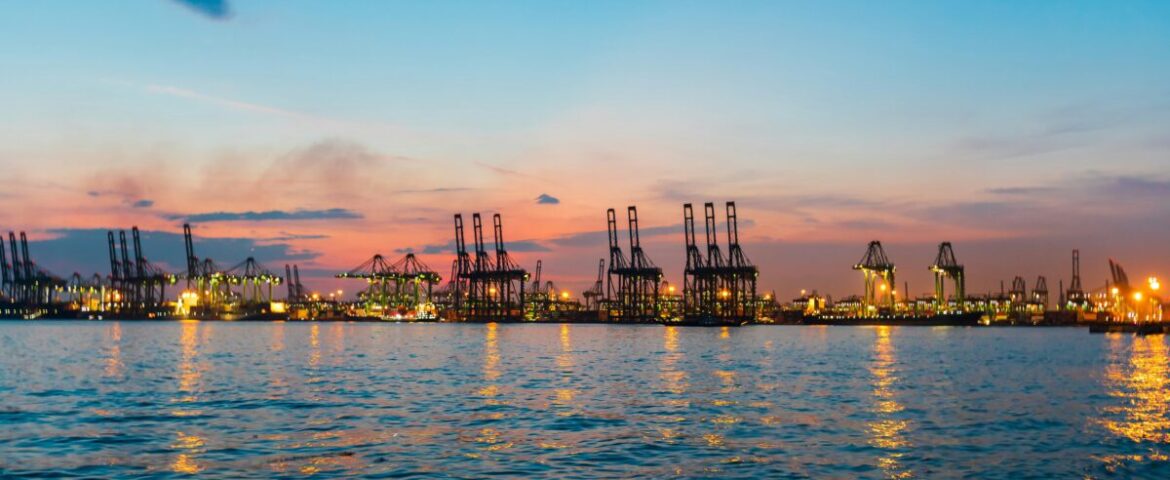In the sphere of port sustainability, renewable energy options present a transformative potential for cargo terminal operations, particularly in mega ports like Singapore.
In a recent study by Wei Yim Yap and PortEconomics co-director Theo Notteboom, titled “Renewable Energy Options for Seaport Cargo Terminals: Application to Mega Port Singapore,” examines the feasibility and benefits of four renewable energy sources—underground thermal, solar, wind, and marine wave energy—in the context of seaport operations.
The findings reveal that geophysical conditions are crucial in determining the suitability of these options. Specifically, solar power is the only viable renewable energy source for Singapore due to its favourable climatic conditions. This focus on solar energy aligns with Singapore’s ambitious net zero carbon emissions goals and addresses the growing demand for green electricity driven by the extensive electrification of terminal operations. By integrating a smart energy management system, the port can optimize the use of solar energy, matching energy demand with supply and enhancing overall energy efficiency.
The study highlights that while renewable energy adoption in ports is still an emerging topic, its potential impact on long-term sustainable development is significant. For port decision-makers in Singapore and beyond, renewable energy options’ economic, social, and environmental performance should be carefully evaluated.
Renewable energy can substantially reduce reliance on the national power grid, decreasing overall electricity consumption.
The full study, published in the scholarly journal Maritime Business Review, is freely accessible via the journal’s webpage here: Yap, W.Y. and Notteboom, T. (2024), “Rnewable energy options for seaport cargo terminals with application to mega port Singapore“, Maritime Business Review,












